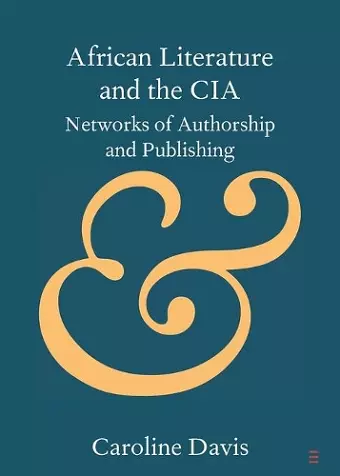African Literature and the CIA
Networks of Authorship and Publishing
Format:Paperback
Publisher:Cambridge University Press
Published:21st Jan '21
Currently unavailable, and unfortunately no date known when it will be back

This Element unravels the hidden networks, associations and the role of the CIA underpinning African literary publishing in the 1960s.
This Element unravels the hidden networks and associations underpinning African literary publishing in the 1960s; it investigates the success of the CIA in disrupting and infiltrating African literary magazines and publishing firms, and determines the extent to which new circuits of cultural and literary power emerged.During the period of decolonisation in Africa, the CIA covertly subsidised a number of African authors, editors and publishers as part of its anti-communist propaganda strategy. Managed by two front organisations, the Congress of Cultural Freedom and the Farfield Foundation, its Africa programme stretched across the continent. This Element unravels the hidden networks and associations underpinning African literary publishing in the 1960s; it evaluates the success of the CIA in secretly infiltrating and influencing African literary magazines and publishing firms, and examines the extent to which new circuits of cultural and literary power emerged. Based on new archival evidence relating to the Transcription Centre, The Classic and The New African, it includes case studies of Wole Soyinka, Nat Nakasa and Bessie Head, which assess how the authors' careers were affected by these transnational networks and also reveal how they challenged, subverted, and resisted external influence and control.
'[A] fascinating and extremely rich study of the soft-power dynamics that animated much of African publishing life at the turning point of decolonization in the 1950s and 1960s.' Raphael Thierry, Publishing Research Quarterly
ISBN: 9781108725545
Dimensions: 177mm x 126mm x 6mm
Weight: 120g
110 pages